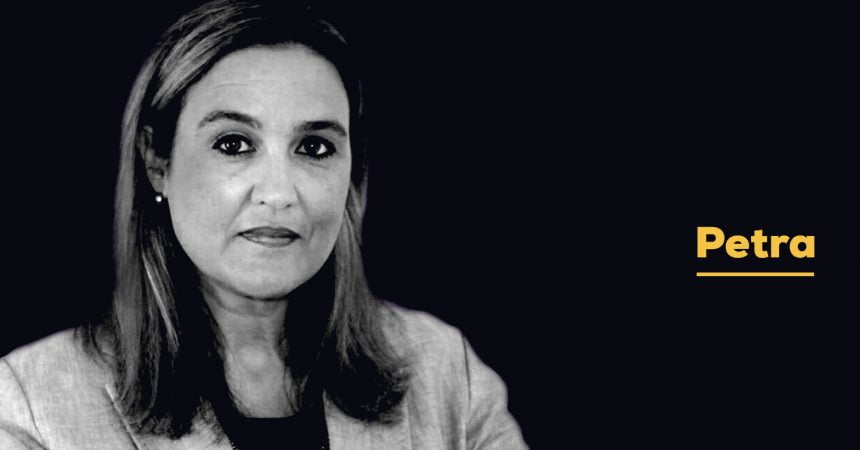This week British members of parliament railed against their Prime Minister Boris Johnson, saying that his incendiary and divisive language could embolden people, particularly extremists. They said that many of them already receive threats, including death threats, from members of the public angry about Brexit.
Johnson’s language was taken to pose a threat, by charging up a generally dangerous atmosphere. It made MPs feel vulnerable and exposed, even though he was not actually singling out any particular individual.
Imagine how Daphne Caruana Galizia must have felt. She was a journalist, not an MP, but she was constantly being singled out. Then, two years ago, she was assassinated in broad daylight near her home.
Daphne used strong language, and her criticism was tough. But the writings of a journalist like her cannot be likened to the language used by politicians with the full weight of their public office behind them and a wide base of politically-motivated supporters.
A blog by an independent journalist cannot be equated with organised trolling or blogging led by a political party or government, with all the influence and resources at their disposal.
Calls for a public inquiry into the circumstances of Caruana Galizia’s murder have been made in Malta ever since her death, but the government brushed them aside. The call for an inquiry by the Parliamentary Assembly of the Council of Europe was more difficult to ignore.
On 26 June, PACE had called on Malta to establish an independent public inquiry within three months. On 20 September, a few days before the deadline, the government complied.
But the inquiry was stillborn. Its credibility is in tatters before it has even begun.
It was immediately obvious to many that the terms of the public inquiry fell short. The PACE rapporteur Peter Omtzigt has now officially reacted: the inquiry “as currently constituted, clearly does not meet the Assembly’s expectations”.
The government swiftly issued their ad hominem rebuttal, attempting to attack Omtzigt’s personal credibility. But that won’t work. His view has been endorsed by PACE’s Committee on Legal Affairs and Human Rights, which is made up of 89 MPs from 47 countries.
Several shortcomings have been identified in the way the inquiry has been constituted, but just looking at one point here: it is tasked to focus on ‘State entities’ and the ‘State’.
As noted by the committee, the terms of reference, worded in this way, could be interpreted to exclude the scrutiny of political and public office-holders from the inquiry.
It notes that it is “essential” that the inquiry also investigates whether such persons “may have contributed to a general climate of impunity and an atmosphere of hostility towards journalists” like Caruana Galizia.
Anybody living in Malta in the years leading to Caruana Galizia’s murder will certainly know that a strong ‘atmosphere of hostility’ was directed towards her. Trolls on social media worked against her in a choreographed way. Will the inquiry examine how that keyboard army functioned?
This news site has investigated the way in which secret online groups feed cycles of spin. Malta has also been identified as one of 70 countries having used organised social media manipulation campaigns, with ‘trolling and disinformation’. Was the trolling against Caruana Galizia organised too and, if so, by whom?
And what about that well-known blog led by the Prime Minister’s close aide and Labour Party MP Glenn Bedingfield? He was then employed at the Prime Minister’s office at the Auberge de Castille. The blog laid into Caruana Galizia, constantly attacking her personally. It also struck out at people associated with her, making her more isolated. The posts were written in different styles and did not look like the work of one man, but of a group of people.
Accepting a blog like that, run by the Prime Minister’s close associate, could be construed as condoning strong attacks against Caruana Galizia. Verbal attacks, of course, not physical – but sadly one thing can lead to another, as sensed by the agitated British MPs standing up to Johnson last week as they invoked the memory of murdered MP Jo Cox.
The holders of political and public office should choose their words judiciously.
In the run-up to the 2017 election, in an official press conference Joseph Muscat had rebutted some criticism made by Simon Busuttil, then Opposition leader. Instead of limiting his argument to his political opponent, Muscat said if Busuttil “wants to protect Malta’s reputation, he should simply head to Bidnija”.
Bidnija, of course, is where Caruana Galizia lived and it was understood to refer to her. She had reacted to this on her blog the next day, on 12 May 2017. She took the message to be: “Don’t blame the corruption, blame the people who report it. And to clear Malta’s name you don’t put the corrupt through due process. You go to the homes of journalists who write about corruption and silence them”.
The atmosphere of hostility against Caruana Galizia is still visible in the members of the public who rip away candles and flowers left at her protest memorial in Valletta. They are emboldened by the government’s own daily sweeping away of the mementoes and tributes to Caruana Galizia. Some of them don’t even stop their thuggish behaviour when being filmed. Isn’t that a sense, or ‘climate’, of impunity?
Could she have been better protected? Why were the verbal attacks on her not averted, or toned down? Could that physical attack have been prevented? Caruana Galizia was known to have received death threats.
A court case aims to establish who is guilty of a crime. But one of the aims of an inquiry would be to understand whether or how the crime could have been prevented, to examine the wider picture and learn lessons from it, and to try to ensure that mistakes are not repeated.












